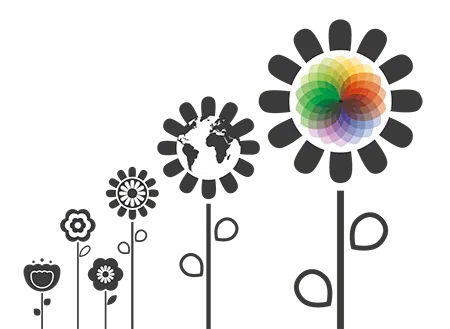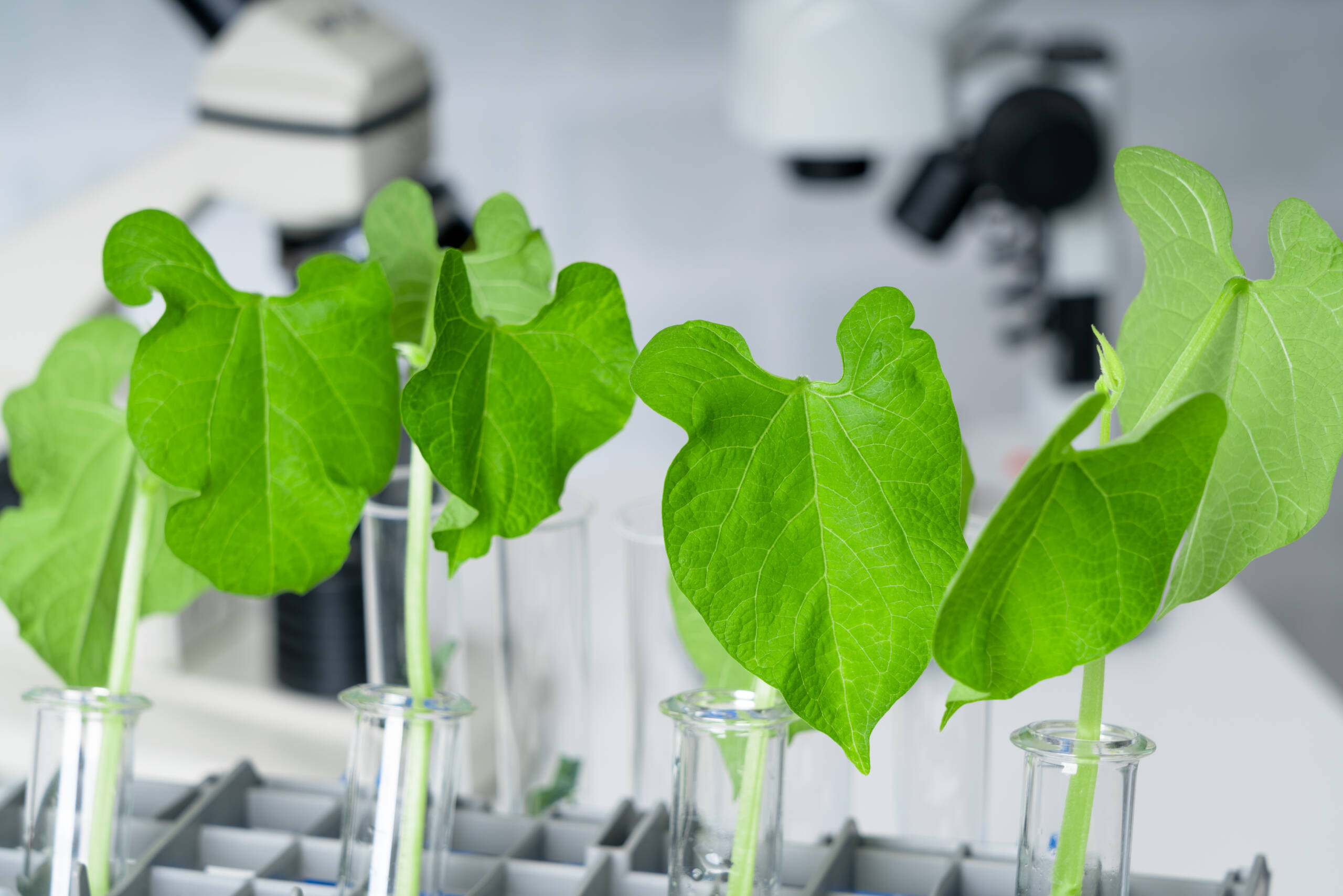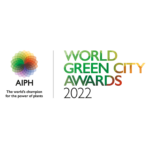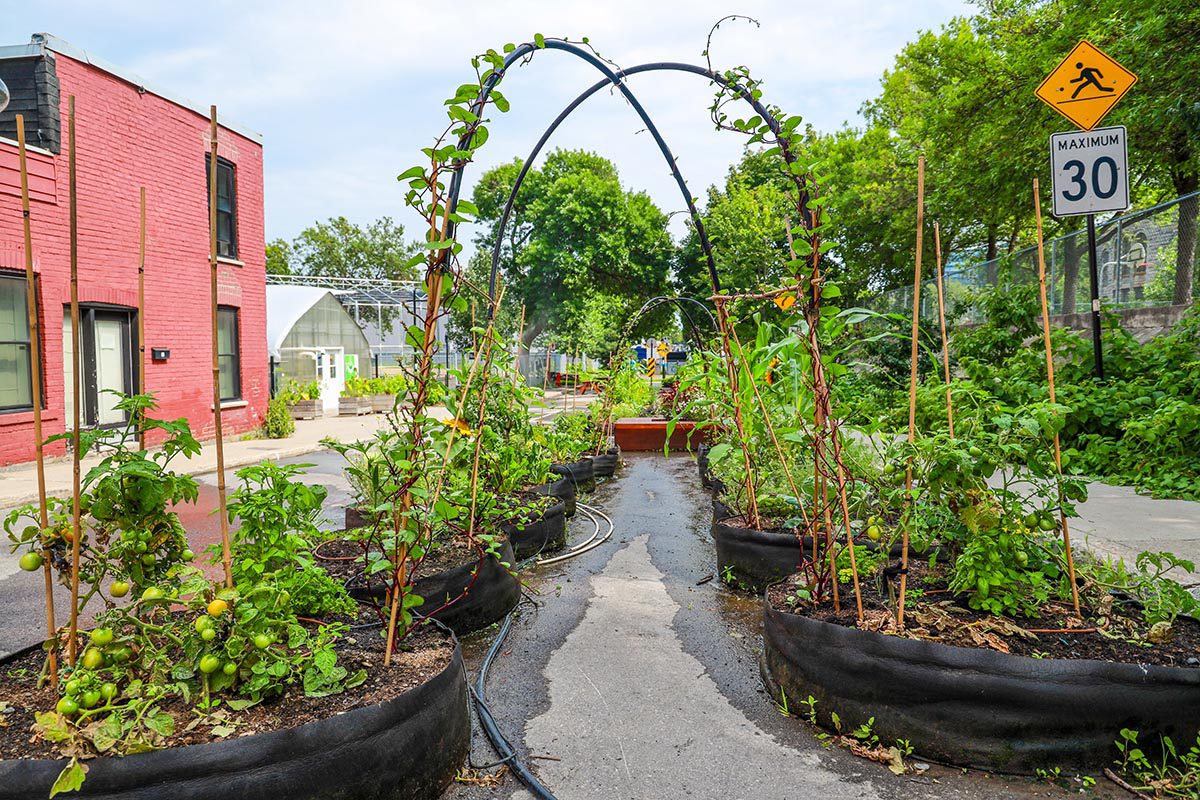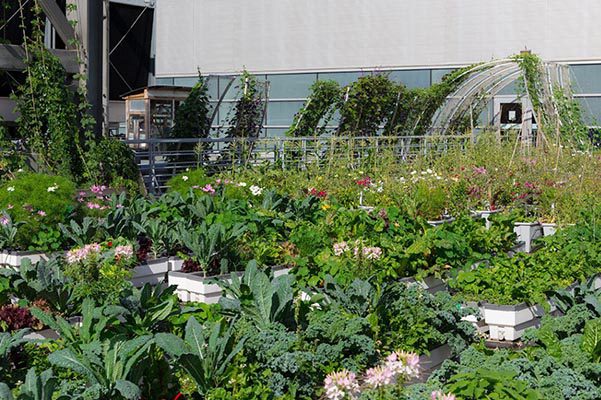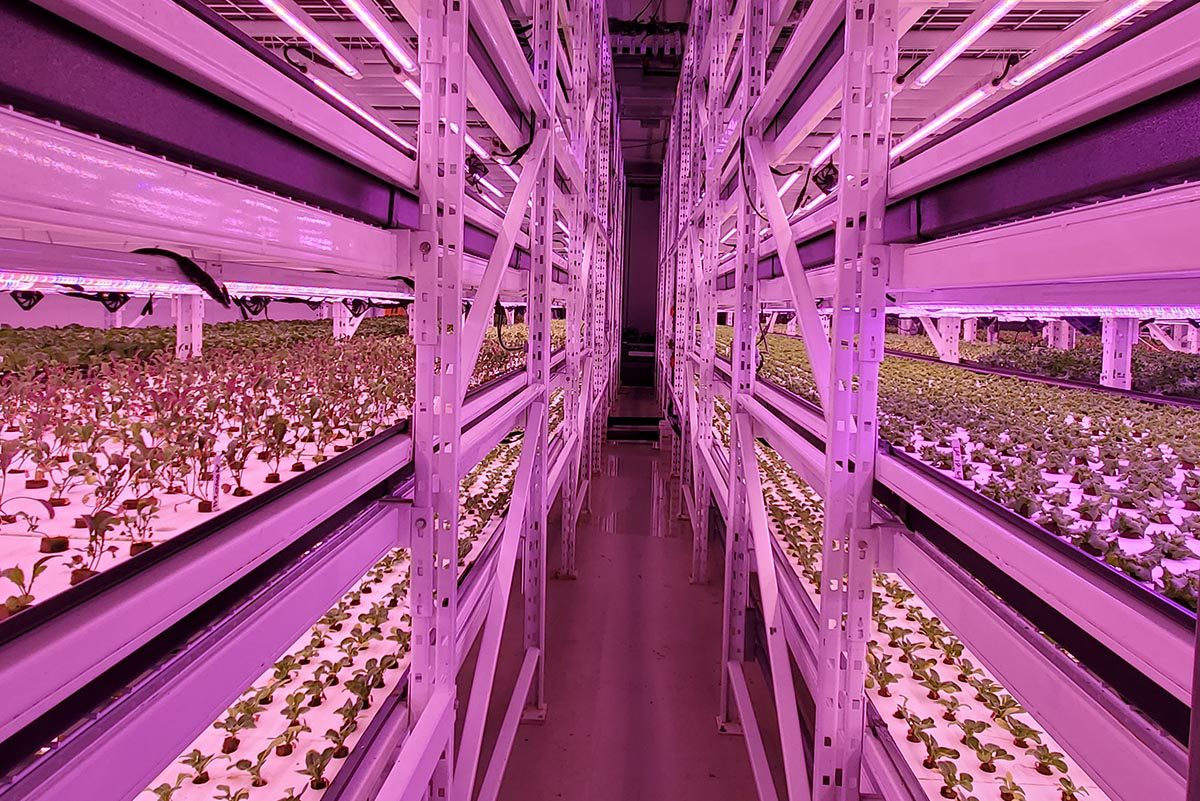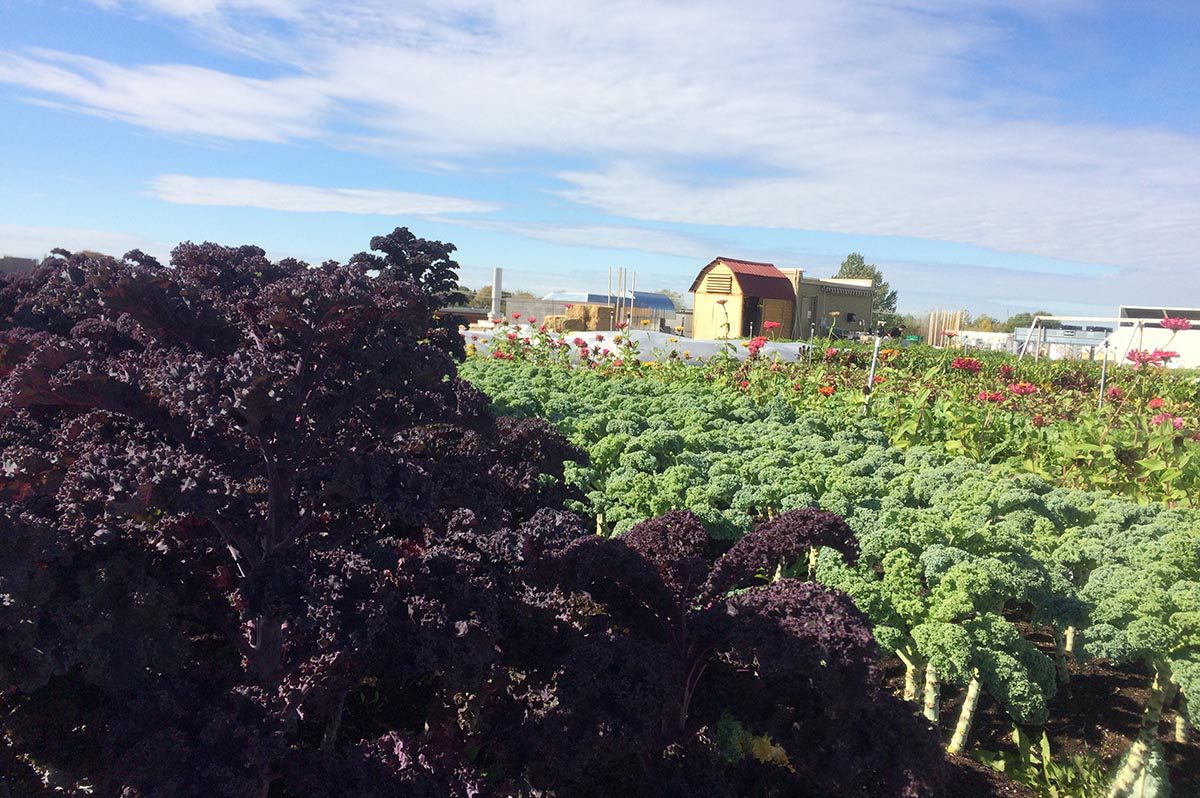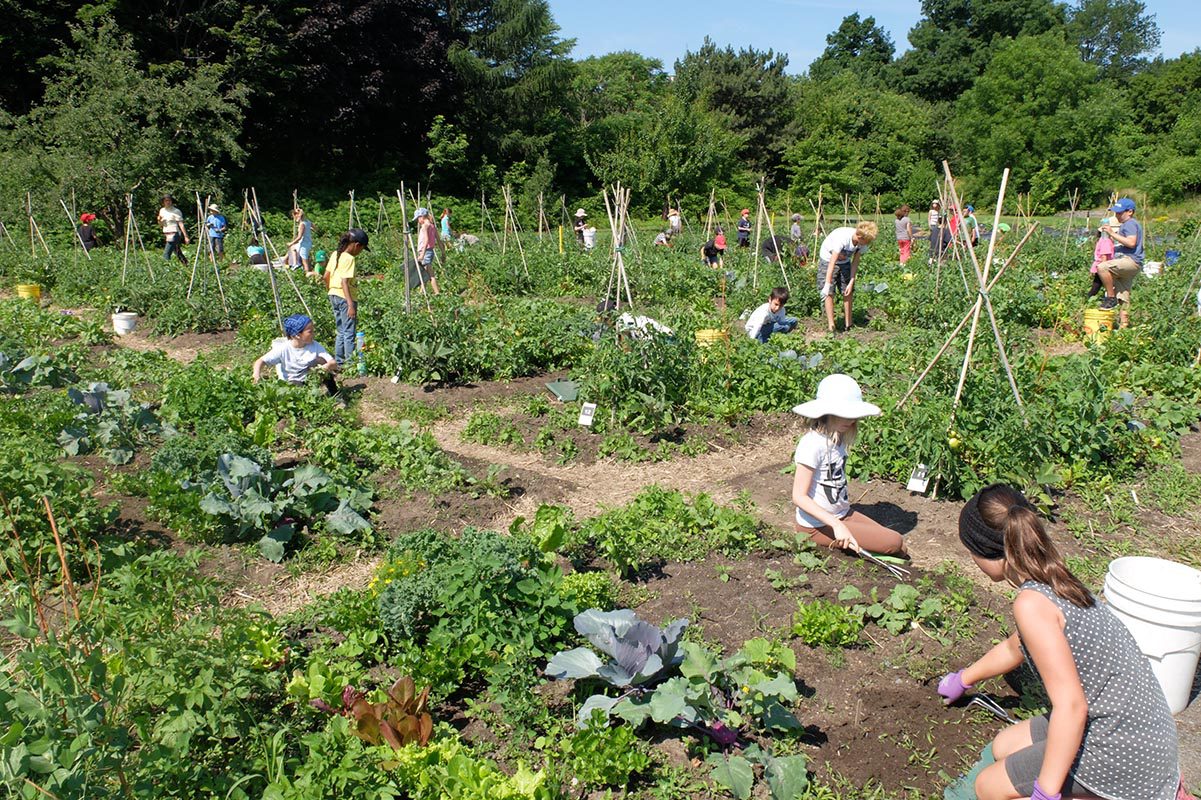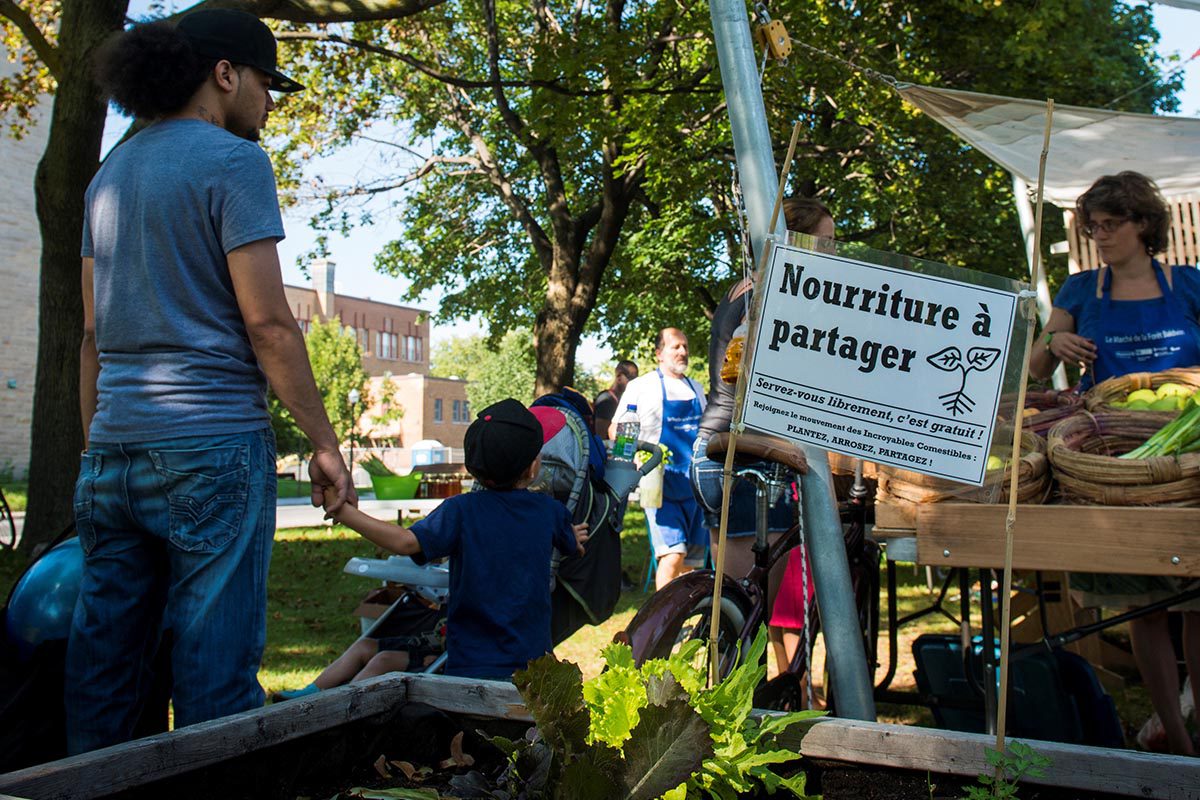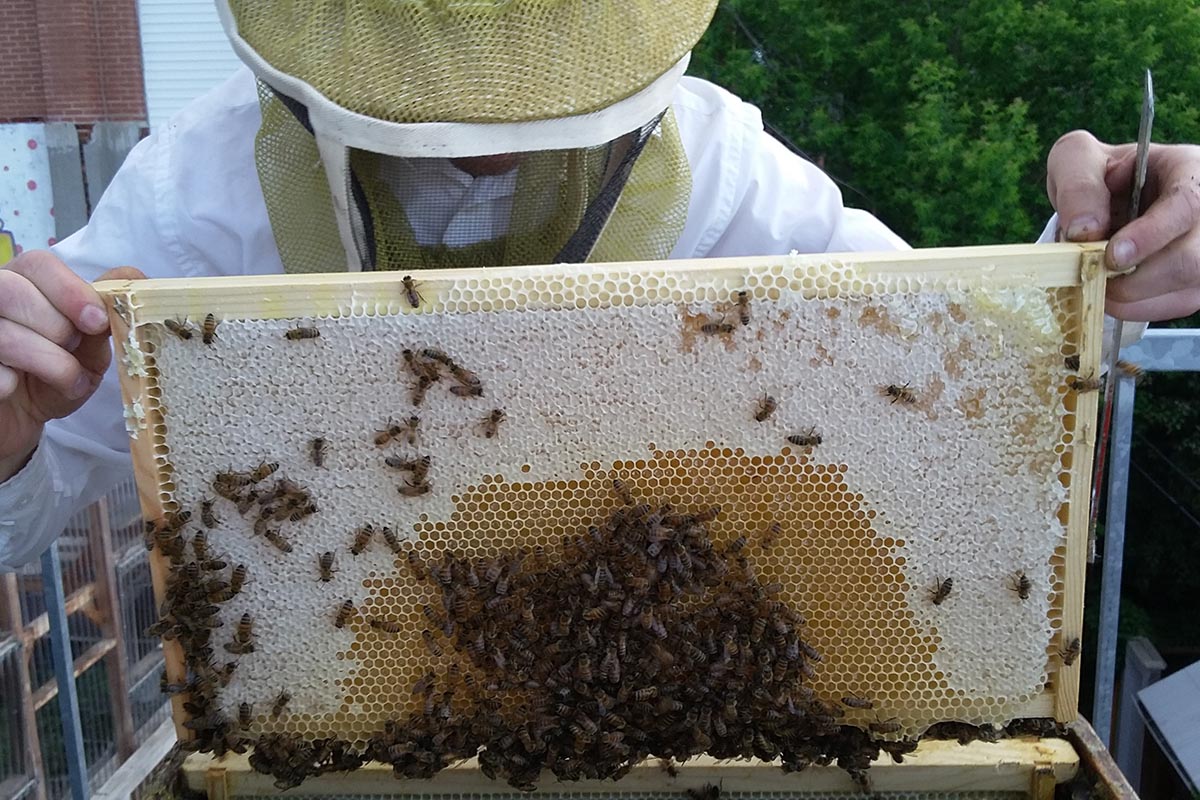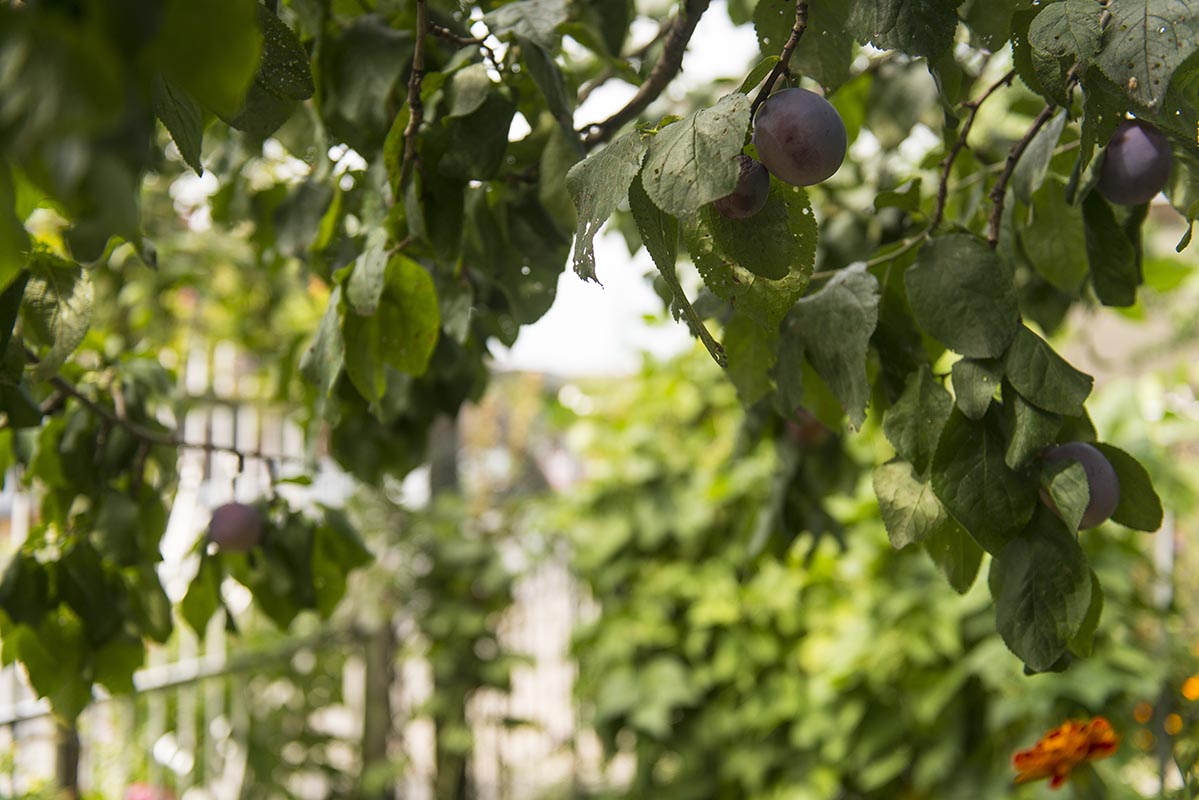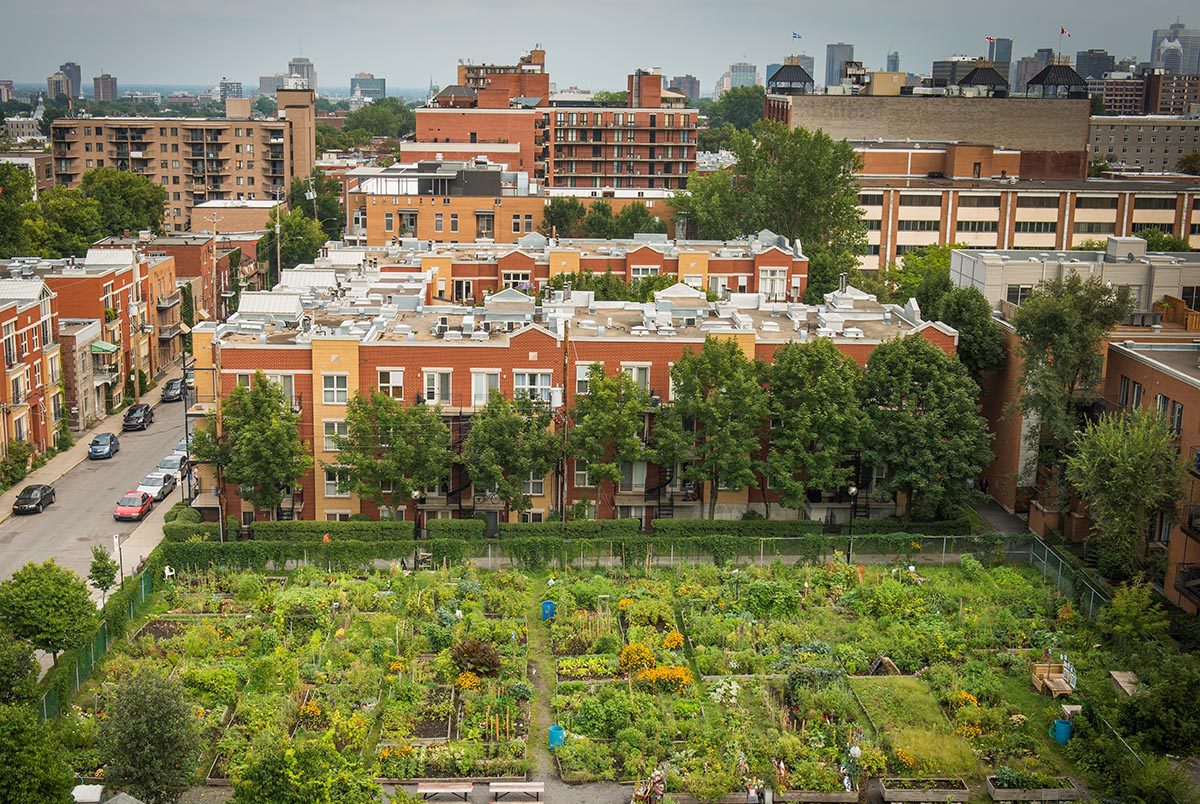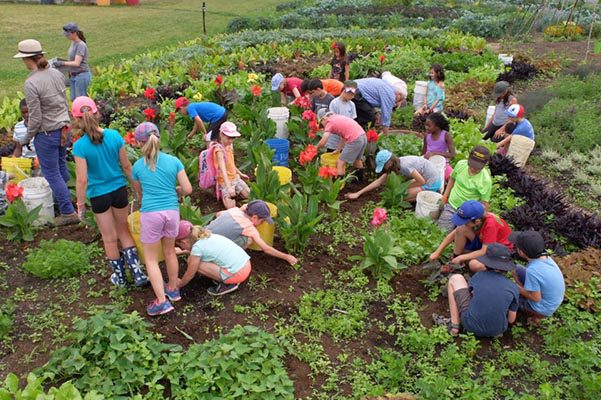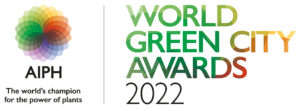Addressing the urban challenge
Breadth of the issue – How are the problem(s) that are being tackled by your initiative affecting citizens/local businesses or a significant component of the local wildlife?
In central neighbourhoods as well as the suburbs, there is no lack of diversity of citizen, community or business practices and initiatives. This diversity is realized on the ground through individual, community and collective gardens, green roofs, edible alleys, edible insect and honey production, and growing fruits and vegetables on vertical structures. Urban agriculture was previously considered a leisure activity. However, this practice is constantly evolving and today responds to new environmental, social and economic concerns.
To meet these challenges, the City, through the 34 actions included in its Strategy, aims to:
- Consolidate and strengthen existing practices
- Facilitate the implementation of new projects, citizen and entrepreneurial initiatives
- Improve data collection to better understand the practice of urban agriculture in Montréal
- Ensure better collaborative governance
- Build relationships with other levels of government, create partnerships and initiate actions that will have greater impact.
Depth of the issue – How seriously are the problems being tackled by your initiative impacting the life of the citizens/businesses/wildlife concerned?
In an effort to develop a more inclusive urban agriculture strategy that best meets the needs of the population, the City of Montréal conducted a survey of 1,000 Montrealers in winter 2021. The goal of this survey was to gather information on the population’s practices, satisfaction and needs, thus targeting actions to be prioritized within the framework of this Strategy. The survey highlighted several trends in the practice of citizen urban agriculture.
Overall, the lack of space (79%) is the main obstacle to urban agriculture. The keeping of chickens and the practice of beekeeping are not currently permitted in Montréal. However, the survey results show that a majority of respondents believe that keeping chickens (60%) and bees (77%) should be allowed.
Currently, Montréal has 8,500 garden plots in 96 community gardens. These cover nearly 30 hectares of cultivated area. Three-year capital investment program spending is estimated at an average of $2,500 per garden for an annual City-wide expenditure of $240,000. Significant investments will be made over the next three years to improve the citizen experience in certain community gardens. See also our answers to “evidence of feasibility” and “protocols in place”.
The power of plants and natural ecosystems to deliver benefits
How is the initiative shaped by scientific evidence of the potential for plants and natural ecosystems to deliver benefits?
Several research studies show that, even if urban agriculture cannot be considered a unique solution to ensure food autonomy, it represents a powerful tool to make progress toward urban resilience, especially in a context of adaptation to climate change. By greening urban spaces, urban agriculture contributes to the establishment of nature in the city, to the ecological balance by enriching urban biodiversity, to the reduction of greenhouse gases (GHG), to the strengthening of social ties and to the improvement of citizen living environments at the neighbourhood level. This is consistent with the City’s priority to accelerate the ecological transition.
How has the city exploited the potential of plants and associated ecosystems to deliver more than one benefit?
Ecological urban agriculture, including permaculture techniques and other biodiversity-friendly production methods, is central to this strategy. The increasing number of gardens and greening projects is very beneficial. In fact, they can act as green corridors and help maintain the city’s biodiversity balance. The City of Montréal and its partners are taking several concrete actions to develop ecological urban agriculture that responds to environmental concerns.
Innovative and Collaborative Solution
How does the initiative show evidence of feasibility, including on-going financial and logistical support?
Currently, the city is already making significant investments in urban agriculture projects. This budget comes mainly from the activities of Montréal in Common ($7.5 million), which is developing a culture of innovation and experimentation based on community needs. Through this program, tangible community-conceived solutions can be quickly implemented and tested with citizens. In the urban agriculture and food components, four projects are underway to increase the effectiveness of community food distribution organizations, improve access to healthy, local food for vulnerable populations, pool local resources to feed everyone and reduce waste in the food distribution chain.
The City of Montréal has also just announced an investment of $10 million in its community gardens over the next 10 years. This funding will allow us to consolidate and improve existing services by upgrading and renovating obsolete facilities in Montréal’s network of public community gardens. It will also provide for developing new spaces and adding cultivable areas in the ground and in containers.
In addition, to stay the course in the face of the pandemic, the city put in place a plan to support Montréal’s economy in 2021. Entitled “Acting Now to Prepare for Recovery,” this plan calls for an investment of $60 million. The plan includes two actions in urban agriculture, i.e., $1.2 million to support the creation of an urban agriculture mini-hub and initiatives that promote research and the transfer of expertise, encourage networking and ongoing training for urban agriculture project managers, as well as networking among owners and entrepreneurs.
In what ways is the initiative innovative?
This initiative is innovative in that it includes all City and private/community activities. Several actions are financially supported and the municipal administration is focusing on actions it wishes to implement or improve in the short term, such as developing a regulatory framework for urban beekeeping in harmony with biodiversity, and promoting the production of local, high-quality compost and facilitating its distribution.
In addition, the City wants to stimulate and encourage emerging initiatives such as the development of biodiversity gardens certified by the Montréal Botanical Garden and encourage edible landscaping projects and mini food forests in the boroughs. Other all-encompassing measures aim at integrating fruit trees in certain greening projects and adopting agricultural practices (use of melliferous plants) that promote biodiversity. More recently, as of January 1, 2022, the city adopted a new by-law that strongly regulates the sale and use of pesticides within its boundaries.
All of these measures are strongly backed by residents and supported by local community and major business organizations.
How is the initiative supported by collaborative working across disciplines and sectors?
In addition to being a field involving multiple competencies, Montréal’s urban agriculture brings together a group of players with diverse expertise as well as a plurality of visions. This can be both a strength and a weakness. It is therefore important that the city continue its efforts to consult and dialogue, involving stakeholders in processes, from planning to implementation on the ground.
The great number of initiatives and diversity of actors in Montréal require an improved governance framework on several levels. It is important to encourage exchanges and collaborations between City departments and boroughs, and to create and strengthen partnerships with both community groups and other levels of government. These partnerships will avoid duplication of efforts, ensure better alignments and create positive synergies to drive urban agriculture. Several actions are being implemented to achieve this, including creating and strengthening exchanges between experts from the city’s central departments and boroughs and creating spaces for sharing and consultation with community partners.
How does the initiative demonstrate evidence of community support?
At the launch of the Urban Agriculture Strategy, key stakeholders spoke out and highlighted the City’s efforts in this area.
“Montréal is one of the world’s urban agriculture capitals, known for its social initiatives and urban agricultural businesses (with a) strong presence in (related) research and university and college education. Montréal’s diversified Strategy supports the movement and actions undertaken by the boroughs in recent years (and) will enable social urban agriculture and urban farms to continue their roles in a green and inclusive economy and in transforming the city, particularly in urban areas undergoing redevelopment. Montréal is asserting its place as the capital of urban agriculture,” said Eric Duchemin, Director of the Urban Agriculture Laboratory (AU/LAB) and associate professor at ISE-Université du Québec à Montréal.
“With this … Strategy, the city is taking a major step to create residential environments that support the sustainable health of people and the planet. (This) is a lever for democratizing access to fresh produce and strengthening … food security and autonomy… It is a strategic contribution to the Montréal Food System Council’s Integrated 2020-2022 Action Plan” said Anne Marie Aubert, FSC coordinator.
“Cultivate Montréal, the network of Montréal farmers, is pleased to support the city in this process by continuing its pivotal mobilizing role… We are particularly enthusiastic about the collaborative efforts outlined and will continue to support these initiatives for the achievement of grounded, sustainable, ecosystem-related collaborative projects and programs” concluded Marie-Anne Viau, President and co-spokesperson of Cultiver Montréal, and Gaëlle Janvier, co-spokesperson.
Implementation, Impact and Replicability
How has the initiative had a ripple effect beyond the scope of the initiative itself, thereby demonstrating a change in the city’s and/or its partners’ way of working with plants?
Annual reporting is planned to measure the effectiveness of the actions included in the Strategy. Performance, outcome and impact indicators to measure the success of the Strategy are as follows
PERFORMANCE (output)
- Number of actions supported or implemented by the City and its boroughs by 2026.
RESULTS (outcome)
- Number of projects completed
- Number of new urban agriculture businesses
- Number of residents trained or made aware of the practice of urban agriculture
- Area of urban agriculture spaces (m2) on public property
- Number of businesses practicing urban agriculture
- Total number of jobs created.
IMPACTS
- Climate change vulnerability map – heat waves
- Quantity of GHG emissions related to urban agriculture
- Improvements to food security and social resilience.
Montréal’s Urban Agriculture Strategy was adopted in September 2021. The framework put in place will allow the tangible effects of this initiative to be measured from 2023 onwards.
How has the initiative had a ripple effect beyond the scope of the initiative itself, thereby demonstrating a change in the city’s and/or its partners’ way of working with plants?
The Strategy has 34 actions and includes commitments that can be carried out by other municipal actors. These include:
- Including dedicated urban agriculture areas in the planning programs for new developments
- Making available agricultural production spaces in municipal infrastructures and assets and encouraging transitional use projects
- Integrating fruit trees into greening projects by promoting edible landscaping and mini food forests
- Facilitating the implementation of urban greenhouse projects through a regulatory experimentation process
- Encouraging projects and gardening in Montréal schoolyards.
These actions are also in line with the City’s desire to make urban agriculture one of the drivers of its green and inclusive economic recovery in order to promote business growth in the sector. With this new strategy, Montréal and its stakeholders will be better positioned to respond to the various food, environmental and social challenges facing the city and its citizens.
How have other cities expressed interest in the initiative, or what potential does it have to interest other cities and be customised to their own circumstances?
This initiative is of great interest to other municipalities throughout the province of Québec, Canada and other major cities around the world. Many municipalities are interested in implementing a community food development plan and the Urban Agriculture Strategy is a contribution to this discussion. The plan consists of drawing up a portrait of the actors, infrastructures, activities and initiatives related to the local agri-food system as well as a diagnosis in consultation with local actors. This diagnosis then makes it possible to define objectives, a common vision and avenues of intervention, particularly for the start-up of new urban, local agricultural enterprises, for greater food autonomy, and for greater resilience in the face of numerous challenges, including climate change.
Sustainability and Resilience
What efforts have been made to reduce the carbon footprint of the initiative?
One third of global greenhouse gas (GHG) emissions are produced by industrial agriculture. Cities depend heavily on imported food products that travel long distances. Conventional means of production and transportation are not always environmentally friendly and contribute significantly to GHG emissions. Encouraging local agricultural production, marketed locally, can have a favourable impact on the quantities of GHG produced. In addition, small-scale agricultural production in cities often uses environmentally friendly methods such as composting, recycling and waste recovery, creating low-carbon systems.
Developed in this spirit, the City of Montréal’s Urban Agriculture Strategy aims to increase the number of agricultural enterprises and the area cultivated within its boundaries.
In 2021, Montréal had 120 ha of cultivated area and about 40 agricultural businesses. The city has set targets of increasing the area cultivated by 40 hectares and adding 15 new agricultural businesses within the next five years.
How have the anticipated impacts of climate change been considered?
Climate change is already being felt in our cities. In recent years we have witnessed floods, high winds and even prolonged heat waves that have had a significant impact on agricultural production.
Montréal devotes 10-15% of its 10-year capital investment budget to dealing with the hazards of climate change. Many projects can benefit from this source of funding, including the installation of irrigation systems in community gardens, greening projects, and tree planting in areas vulnerable to heat islands.
One of four strategic directions of the Urban Agriculture Strategy is to encourage and support citizen education, awareness-raising, training and skills development through workshops on cultivation techniques, choice of seeds and plants, and biological control of various pests. Several specialized organizations are given financial support to conduct these workshops.
One of the actions put forward by the Strategy is to support initiatives that promote research and knowledge transfer. The city has already awarded CRETAU (Carrefour de recherche et d’expertise in agriculture urbaine, the Urban Agriculture Research and Expertise Interchange) $150,000 to conduct research, develop solutions adapted to the urban context and disseminate information in the form of guides, training and technical datasheets.
The City’s project evaluation process incorporates criteria related to the vulnerability of populations to climate hazards such as heat islands and their resilience to heat waves.
What processes does the initiative include for it to be considerate in its use of soils and other natural resources?
Ecological urban agriculture, including permaculture techniques and other biodiversity-friendly production methods, is central to this strategy. The City of Montréal and its partners will implement several concrete actions to develop ecological urban agriculture that responds to environmental concerns. In addition, the city will promote the production of local, quality compost and facilitate its distribution to gardeners. Boroughs can receive financial support through the City’s recently launched Community and Public Gardens Development and Rehabilitation Program to install composters and water harvesting systems in community gardens.
Monitoring, Maintenance, and Management
How has the initiative been designed and implemented so that long-term needs for management and maintenance are reduced and can be met?
Currently, Montréal has 8,500 garden plots in 96 community gardens. These cover nearly 30 hectares of cultivated area. These gardens are managed by the boroughs. Management methods and tools differ from one borough to another. These tools have their limitations and do not provide a city-wide overview of all community gardens. For example, it is difficult to know exactly how many people are on waiting lists and how long they have to wait for a garden. To address this problem, the City of Montréal will work with its boroughs to develop a common management tool for all community gardens. This software will enable data collection, reduce management and maintenance costs, and improve service to residents.
What protocols are in place to facilitate monitoring of results?
The development of the Urban Agriculture Strategy is based on a common vision: to strengthen Montréal’s role as a leader in urban agriculture, to make this practice more accessible and to ensure its harmonious and sustainable development. A number of actions will be taken to realize the City’s vision for urban agriculture.
Three targets have been identified to measure the success of the Strategy to be implemented by 2026. The city plans to increase the cultivated area within its boundaries to 160 hectares, achieve 55 urban agriculture businesses, and carry out 50 new urban agriculture projects in Montréal schools.
In 2021, Montréal will count nearly 120 ha of cultivated area. The estimate of cultivated space includes community and collective gardens, private gardens and back yards, educational and institutional gardens, and City land already cultivated in the future Grand parc de l’Ouest. The target is 160 hectares by 2026. For the second target, there were 40 urban agriculture businesses in Montréal in 2020 and the target is 55 within five years. Finally, the third target is to develop 50 new projects in schools, in addition to existing school-based initiatives. Annual reporting is planned to measure the effectiveness of the actions included in the Strategy.
How has the initiative been enhanced in response to monitoring of results?
The City of Montréal recognizes the importance and the social, environmental and economic benefits of urban agriculture on its territory. It has made commitments within the framework of its programs to support this initiative. Moreover, several actions related to urban agriculture are included in the City’s planning documents such as the 2020-2030 Climate Plan, the Montreal Strategy for a Resilient City 2018-2023 and the 2021 Economic Recovery Plan. Some boroughs, such as Rivière-Prairies–Pointe-aux-Trembles and Rosemont–La Petite-Patrie, have already adopted urban agriculture policies and plans to support the practice on their territory. Moreover, the implementation of these policies has led to the emergence of certain projects such as the urban agriculture innovation centre in Rivière-des-Prairies–Pointe-aux-Trembles.

